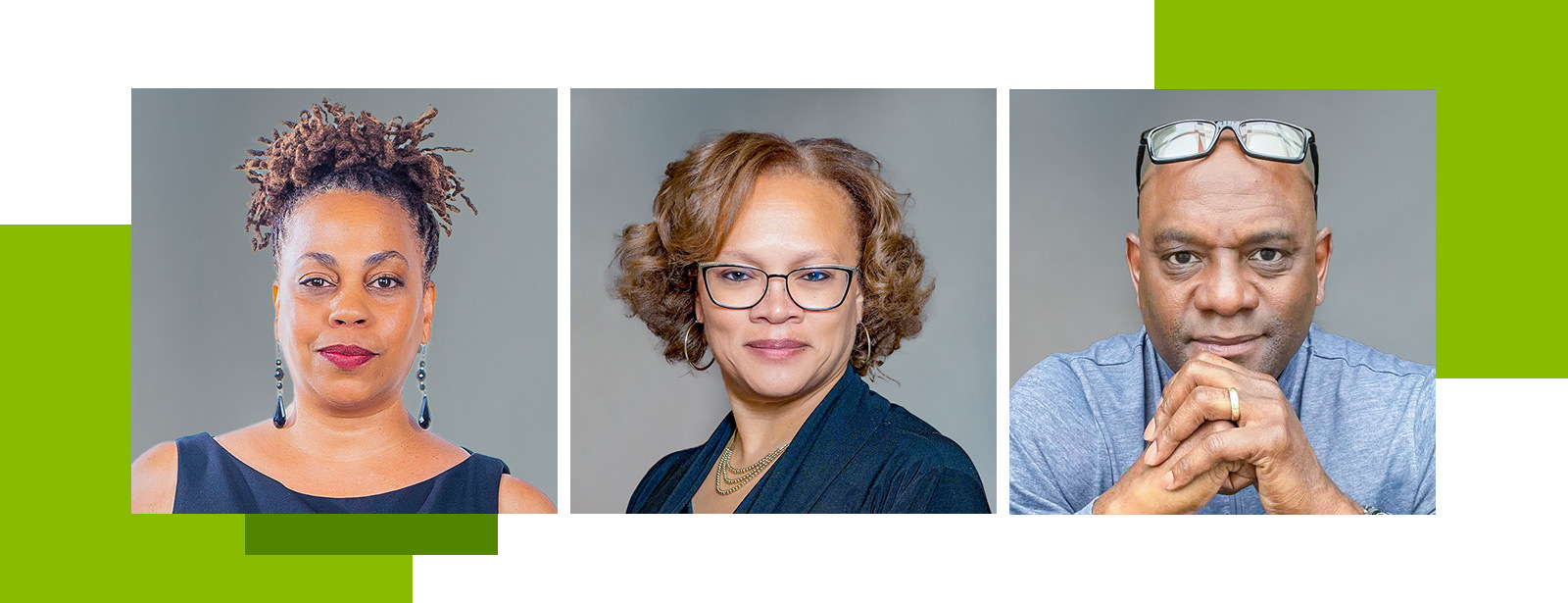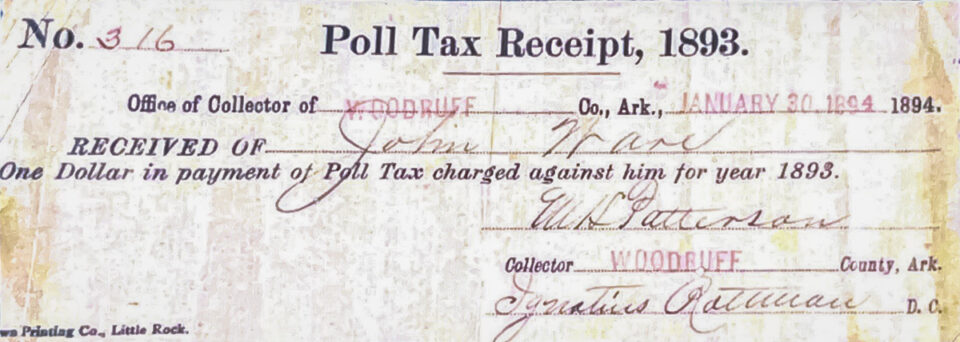February may be over, but Regions Bank is continuing to celebrate Black history through its Regions Riding Forward® Scholarship Contest, which is accepting entries through March 31, 2023.
The contest encourages students to share the inspiring story of a Black American through a written or video essay. The subjects of the essays may be known worldwide. Or they may be people who aren’t famous – but their character, commitment and impact on others serves as an inspiration to today’s students and tomorrow’s leaders.
In honor of Black history and the 12th annual Riding Forward Scholarship Contest, we are continuing to highlight Black leaders of nonprofit, educational and Diversity, Equity and Inclusion-focused community organizations that the bank has worked with over time.
Regions asked Dr. Samantha Briggs, Vice President of Education at the Birmingham Civil Rights Institute; Dr. Tonya Perry, Vice Provost at Miles College ;and nonprofit High Impact Movement founder and leader Amos Gray to share their thoughts on what Black history means to them. They’re also sharing contest information with their constituents and encouraging eligible students to apply. We invite you to do the same.
 Left to Right: Dr. Samantha Briggs, Dr. Tonya Perry, Amos Gray
Left to Right: Dr. Samantha Briggs, Dr. Tonya Perry, Amos Gray
Q: What does Black History Month mean to you?
Briggs: Black History Month is a designated time to celebrate the achievements of Black Americans and to acknowledge the contributions we’ve made to society. It’s 28 days (and the occasional 29th!) when our society is more intentional about learning the storied past and legacy that all cultures enjoy and benefit from today. In a time when we’re fighting to keep history alive and taught in schools, designated heritage months create temporary cultural immersions that penetrate beyond the schoolhouse and show up on billboards, social media posts, retail stores, commercials, menus and more. So, whether one wants to or not, Black History Month becomes a time of reflection on what was, what is, and what could be – for us all.
Perry: Black History Month is an opportunity for everyone to learn more about the history of African-American culture and people. This gives everyone a chance to read about and study the contributions of Black people in America. As we progress as a nation, Black history, which is a part of American history, should be interwoven into the history of our country and learned year-round.
Gray: What black history means to me is opportunity. I say opportunity, because when I think about black history I think about my family’s history.
I can trace my history all the way back to the Ivory Coast of Africa where my ancestors were enslaved, brought to America, and where they worked the cotton fields, tobacco fields, and eventually gained their freedom and had the opportunity to do something with their freedom. And that they did!
My great-grandfather not only took the opportunity to farm the land as a sharecropper, but he took the opportunity to eventually pay his poll tax with the money he made so he could have a voice to vote. He and his wife also paid the poll tax for his neighbors who couldn’t.
I think about my mother, who took the opportunity to be a voice to lobby and persuade a city to bring water and garbage services to her West Little Rock community. I think about the opportunity that I have to do work every day to give others who look like me the opportunity to learn about their history and take what they learn to give others an opportunity to do the same.

Q: What’s one thing you would encourage people to do to celebrate Black History Month?
Briggs: I encourage you to go beyond the traditional and most convenient history – the names, stories and inventions that are most frequently circulated – and dig deep into the roots to uncover what’s unfamiliar and uncomfortable. Further, I encourage people to celebrate diversity and culture throughout the year with intentionality and concern for all. Find the ways we complement one another. Find the similarities. Celebrate all parts of one’s cultural history and truth, not just the parts that feel safe, warm, and fuzzy. And by all means, don’t limit it to a month…especially not the shortest month of the year! Celebrate all people every day.
Perry: Commit to reading and learning more about African Americans and their contributions to America. Look beyond the people you already know and dig deeper to find out their influence and impact. Expand your understanding and challenge yourself to learn more about new people and other contributions. And look nationally and locally at the impact and authors. Continue to learn more beyond February and to incorporate diverse books and opportunities into your regular reading/learning regiment.
Gray: I encourage others to celebrate Black history with those around them by not just talking about old stories and the things that went on in the 1950s, 1960s or even back in the 1800s, but to talk about how Black history relates to us today in the 21st Century, and consider what Black history will look like in the next century. It is important that we see that Black history is an evolving story.
Q: What gives you hope about today’s civil rights movement?
Briggs: I love the seemingly new (or perhaps rebirthed) awareness of self-care and healing. We as a people – individually and collectively – have experienced a variety of traumas generationally and in our current lifetime. I’m grateful to see individual care, that will yield to community care. Once we do a better job of taking care of ourselves emotionally, spiritually and physically… I believe we can do a better job of taking care of our brothers, sisters, and elders on a community level. We can see one another and hear one another. Our youth can find voice and feel confident in leading. Our elders can see their potential, find hope in their abilities, and encourage their efforts. It’s exciting that despite attempts to silence, we can still be heard through platforms and open forums that recognize the need to keep the conversation(s) going.
Perry: I love to see the young people taking up the cause and getting involved in the fight for social justice. They are expressive and committed to change, and it gives me hope.
Gray: Although we still have such a long way to go when it comes to the civil rights of the American Black citizens, we have come such a long way. Through the years, we have watched the advancement and seen such progress among African Americans in our county in economics, technology, politics and social activism. As we continue to educate and expose our young people to all of America and our Constitution, I believe we will see the best of America …. where all people have the rights and privileges to live, say, do and interact with others in a way that truly brings peace in a country united.
If these leaders have you feeling inspired, the Regions Riding Forward Scholarship Contest is open to high school seniors and college freshmen, sophomores and juniors who are residents of (or who are currently enrolled in accredited colleges located in) the 15 states that have Regions full-service branches. A total of 60 scholarships will be awarded, consisting of 30 high school and 30 college student awards.
Here are more details about the 2023 Regions Riding Forward® Scholarship Contest:
- Each applicant must submit a 500-word (or less) written essay or a 3-minute (or less) video essay that addresses how a Black American individual has inspired change in the applicant’s life, and that discusses the contributions of that Black American individual.
- Applications must be submitted by March 31, 2023.
- Scholarships will include a total of 30 awards of $2,500 each for high school winners (15 scholarships for written essays and 15 scholarships for video essays) and 30 awards of $1,750 each for winners who are currently enrolled as college students (15 scholarships for written essays and 15 scholarships for video essays).
- An independent selection committee will judge the written essay and video essay submissions and select the winners.
For official rules, complete entry details and eligibility requirements, visit the contest website at www.regions.com/ridingforward. No purchase or banking relationship is required to enter the contest.
